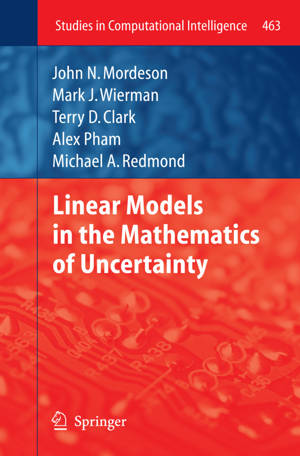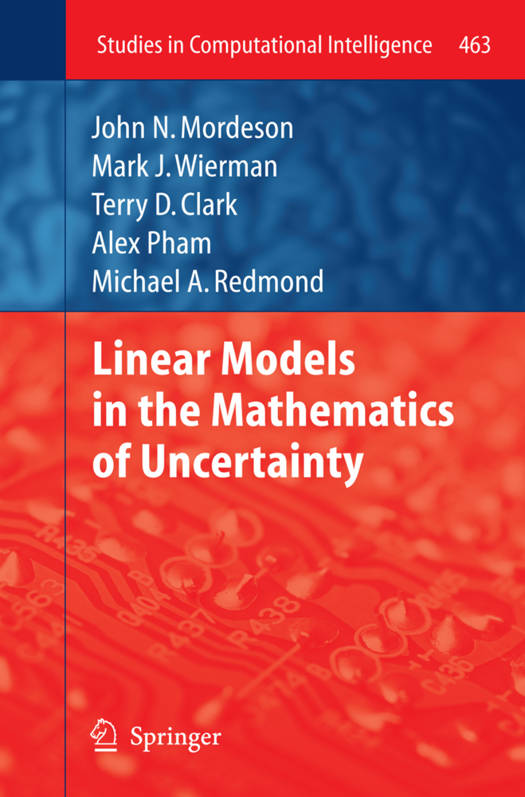
- Retrait gratuit dans votre magasin Club
- 7.000.000 titres dans notre catalogue
- Payer en toute sécurité
- Toujours un magasin près de chez vous
- Retrait gratuit dans votre magasin Club
- 7.000.0000 titres dans notre catalogue
- Payer en toute sécurité
- Toujours un magasin près de chez vous
Linear Models in the Mathematics of Uncertainty
Carol Jones, Mark J Wierman, Terry D Clark, Alex Pham, Michael A RedmondDescription
The purpose of this book is to present new mathematical techniques for modeling global issues. These mathematical techniques are used to determine linear equations between a dependent variable and one or more independent variables in cases where standard techniques such as linear regression are not suitable.
In this book, we examine cases where the number of data points is
small (effects of nuclear warfare), where the experiment is not repeatable (the breakup of the former Soviet Union), and where the data is derived from expert opinion (how conservative is a political party). In all these cases the data is difficult to measure and an assumption of randomness and/or statistical validity is questionable.
We apply our methods to real world issues in international relations such as nuclear deterrence, smart power, and cooperative threat reduction. We next apply our methods to issues in comparative politics such as successful democratization, quality of life, economic freedom, political stability, and failed states. Finally, issues involving deaf and hard of hearing children are explored.
Spécifications
Parties prenantes
- Auteur(s) :
- Editeur:
Contenu
- Nombre de pages :
- 265
- Langue:
- Anglais
- Collection :
- Tome:
- n° 463
Caractéristiques
- EAN:
- 9783642438806
- Date de parution :
- 07-03-15
- Format:
- Livre broché
- Format numérique:
- Trade paperback (VS)
- Dimensions :
- 156 mm x 234 mm
- Poids :
- 417 g

Les avis
Nous publions uniquement les avis qui respectent les conditions requises. Consultez nos conditions pour les avis.






